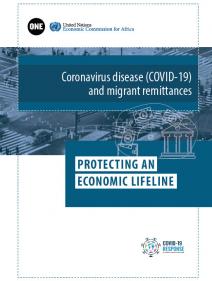Remittances constitute a global lifeline for people across the planet, especially in low- and middle-income countries. Their importance has even exceeded that of foreign aid, private capital flows, and foreign direct investment in developing countries.
The COVID-19 pandemic has severely impacted remittance inflows to Africa, mainly owing to the situation that African migrants face in destination countries, many of which have been greatly affected by the pandemic, and the disruption of the operations of remittance service providers.
Based on World Bank projections, the Economic Commission for Africa (ECA) projects that remittance inflows to Africa could decline by 21 percent in 2020, implying $18 billion less will go to the people who rely on that money. It is therefore critical to preserve this essential lifeline. As the world enters an economic downturn, remittance flows will be more important than ever for the poorest and most vulnerable people, in particular those without access to economic and social safety nets. Governments across the world should take effective action to facilitate and boost remittances in view of supporting the fight against COVID-19 and ultimately building a more sustainable post-pandemic world.
Against this backdrop, ECA and ONE Campaign have analyzed the impact of the COVID-19 pandemic globally and in Africa, and have explored ways to attenuate the socio-economic consequences and preserve remittance lifeline.

